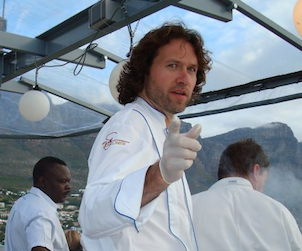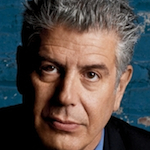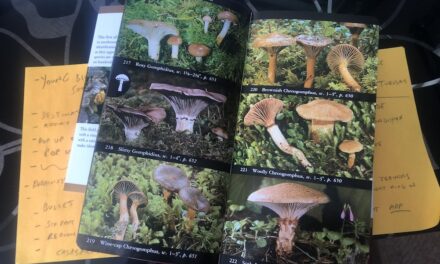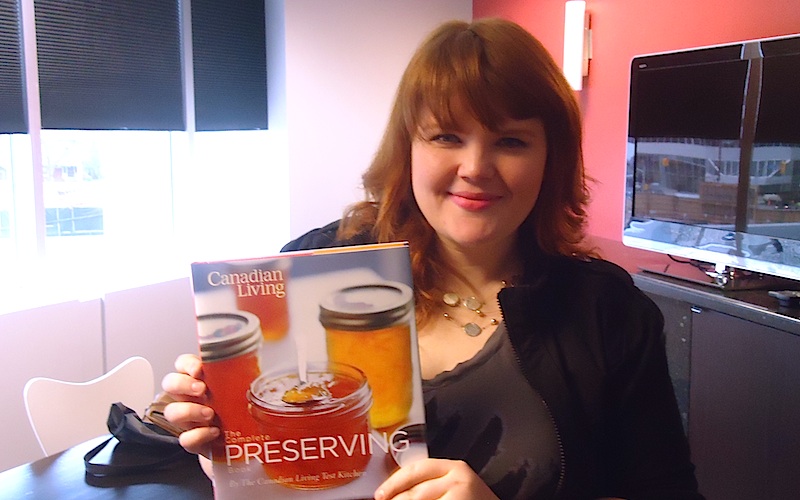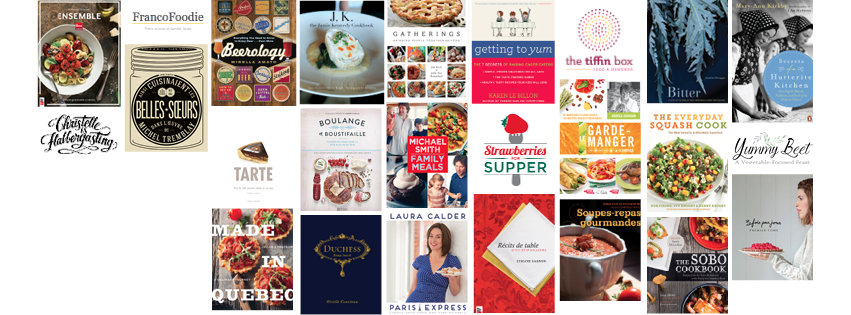 “I’ve always believed that cuisine and music will solve the problems of the world,” Vikram Vij told us Monday night. Vij, Vancouver’s guru of restaurant entrepreneurship, was cohosting Taste Canada’s 2015 Food Writing Awards gala. I conclude that Vij’s family must be a lot more civilized than mine. World peace sure wasn’t starting in our kitchen, where tears and bickering were more abundant than the food on the table. Our house was the perfect mix of the Jerry Springer Show and Hell’s Kitchen. Vij was addressing the night’s recurring theme of how Canadian cooking’s strength is in its diversity. Taste Canada’s other host, chef, author and TV personality Ricardo said, “There’s so much diversity from coast to coast- we can create our own traditions.” Due to the fact that we are a new country populated by immigrants from every continent, we have unlimited access to authentic cuisine from every corner of the world. Sushi and burritos are ubiquitous. My local grocer stocks za’atar, an herbal blend from Lebanon, and mitmita powder, from Ethiopia, and I use both in cooking. There’s Hakka: hot, sweet, yummy fusion food from Chinese Indians in Canada. There are delicious herring and dill sandwiches from Norway down the street. Toronto even has a Serbian owned Creole pizzeria. We are also a large country, with countless geographical regions that change the focus and flavour of the food. Lobster. Lentils. Beef. Peaches. Apples. Wine. Anyone who’s tried serving raw fish or marmite to a six year old, or ordered brain tacos on a date, knows that it might take more than united kitchens of Benetton to bring about world peace. But all joking aside, food’s importance extends much deeper than mere physical fuel. It’s the centre of family and the focus of cultural customs, and it builds bonds and bridges between families and with strangers. As we hop from one to another of the world’s tables, we learn so much about history, religion, and people. Ricardo also noted that, “The culture of nations starts around the table.” It’s not only that we learn about others; at home, dining with the family, “You get to know who you are.” In this context, the cookbook can be seen as a legacy, as a family and community inheritance, as a historical document, and a passport to both time travel and other worlds. Trading recipes in this way is not just about love of eating. It is at once an act of preservation and an invitation to hospitality. The hosts were joined by event sponsor Gusto TV’s Chris Knight, who talked about his passion for sharing Canadian food stories. “Our mantra,” he said, “is, if you’re going to buy a cookbook, buy a Canadian cookbook.” There is no end to the subject possibilities. “We think we are the most culinary diverse nation in the world.” For eighteen years, Taste Canada’s Food Writing Awards have been honouring these cookbooks, and the history and creation of Canadian culinary culture. Donna Dooher, National Chair, recognized “how much work and how much passion goes into producing a cookbook…it’s a tremendous act of love.” Each year, submissions are accepted in English and French, in a variety of categories, including General Cookbooks, Regional/Cultural, Single Subject, and Culinary Narratives. And this year, looking to the future, Taste Canada acknowledged food Blog Posts as a category for the first time. Volunteer judges are chefs, restaurateurs, farmers, agricultural consultants, food writers, instructors, nutritionists, and more from across Canada. As Dooher noted, “they read every single word” and tested the recipes in the submitted books and blogs.
“I’ve always believed that cuisine and music will solve the problems of the world,” Vikram Vij told us Monday night. Vij, Vancouver’s guru of restaurant entrepreneurship, was cohosting Taste Canada’s 2015 Food Writing Awards gala. I conclude that Vij’s family must be a lot more civilized than mine. World peace sure wasn’t starting in our kitchen, where tears and bickering were more abundant than the food on the table. Our house was the perfect mix of the Jerry Springer Show and Hell’s Kitchen. Vij was addressing the night’s recurring theme of how Canadian cooking’s strength is in its diversity. Taste Canada’s other host, chef, author and TV personality Ricardo said, “There’s so much diversity from coast to coast- we can create our own traditions.” Due to the fact that we are a new country populated by immigrants from every continent, we have unlimited access to authentic cuisine from every corner of the world. Sushi and burritos are ubiquitous. My local grocer stocks za’atar, an herbal blend from Lebanon, and mitmita powder, from Ethiopia, and I use both in cooking. There’s Hakka: hot, sweet, yummy fusion food from Chinese Indians in Canada. There are delicious herring and dill sandwiches from Norway down the street. Toronto even has a Serbian owned Creole pizzeria. We are also a large country, with countless geographical regions that change the focus and flavour of the food. Lobster. Lentils. Beef. Peaches. Apples. Wine. Anyone who’s tried serving raw fish or marmite to a six year old, or ordered brain tacos on a date, knows that it might take more than united kitchens of Benetton to bring about world peace. But all joking aside, food’s importance extends much deeper than mere physical fuel. It’s the centre of family and the focus of cultural customs, and it builds bonds and bridges between families and with strangers. As we hop from one to another of the world’s tables, we learn so much about history, religion, and people. Ricardo also noted that, “The culture of nations starts around the table.” It’s not only that we learn about others; at home, dining with the family, “You get to know who you are.” In this context, the cookbook can be seen as a legacy, as a family and community inheritance, as a historical document, and a passport to both time travel and other worlds. Trading recipes in this way is not just about love of eating. It is at once an act of preservation and an invitation to hospitality. The hosts were joined by event sponsor Gusto TV’s Chris Knight, who talked about his passion for sharing Canadian food stories. “Our mantra,” he said, “is, if you’re going to buy a cookbook, buy a Canadian cookbook.” There is no end to the subject possibilities. “We think we are the most culinary diverse nation in the world.” For eighteen years, Taste Canada’s Food Writing Awards have been honouring these cookbooks, and the history and creation of Canadian culinary culture. Donna Dooher, National Chair, recognized “how much work and how much passion goes into producing a cookbook…it’s a tremendous act of love.” Each year, submissions are accepted in English and French, in a variety of categories, including General Cookbooks, Regional/Cultural, Single Subject, and Culinary Narratives. And this year, looking to the future, Taste Canada acknowledged food Blog Posts as a category for the first time. Volunteer judges are chefs, restaurateurs, farmers, agricultural consultants, food writers, instructors, nutritionists, and more from across Canada. As Dooher noted, “they read every single word” and tested the recipes in the submitted books and blogs.
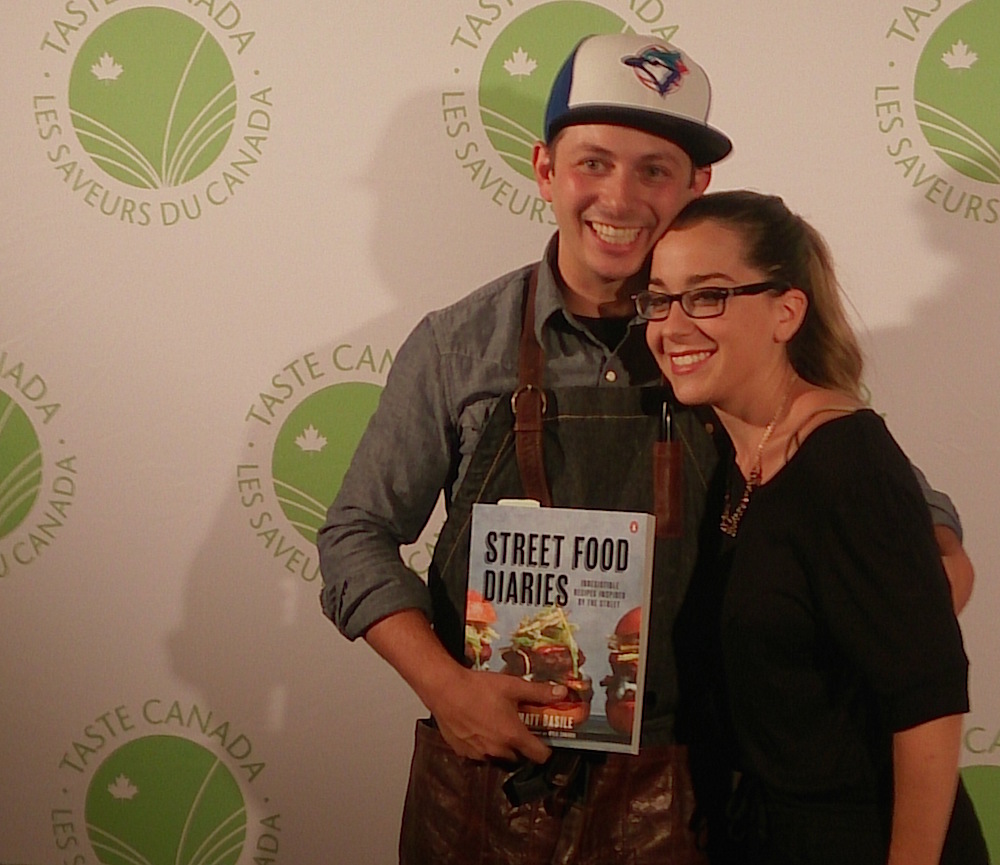
Matt Basile and Kyla Zanardi of Fidel Gastro, who catered the event.
A quick look at the nominees gives us a sense of the scope of the Canadian culinary imagination, and that theme of the possibilities food creates for family, community, and intercultural bonds. One regional nominee is Julian Armstrong’s Made in Quebec, a vital contribution to alleviating the surprising paucity of books on the subject. Michael Smith’s Family Meals emphasizes the importance of togetherness and involves everyone in the kitchen. The Everyday Squash Cookbook by Rob Firing and Ivy Knight highlights an underrated vegetable that grows abundantly in our country. La Recolte by Bernard Dube (Honourable Mention) is about foraging for wild flora and fauna. Secrets of a Hutterite Kitchen: Unveiling the Rituals, Traditions, and Food of Hutterite Culture claimed the gold in the Culinary Narratives category. Mary-Ann Kirkby said, “Canada is home to the highest concentration of Hutterites in the world.” I would bet that few in the audience, myself included, were aware of this. Such a statement was a powerful illustration of the incredible variety of definitions of Canadian. The Hutterites, who share some commonalities such as pacifism with the Amish and my own Mennonite ancestors, were nearly extinct in the 19th century, numbering 400. Today there are more than 40 000, most in Canada. Kirkby, who was born into a Hutterite community but whose family left when she was a child, returned to her roots, travelling to different colonies and working with them women in their kitchens- “cooking, baking, plucking ducks, and gossiping.” The importance of women to food history, to the family and culture and world, is not just for Hutterites, of course. The evening’s ceremony honoured women with this year’s four inductees to the Hall of Fame. Everybody’s favourite food lady, Rose Murray, graced the stage in celebration of a lifetime of cookbooks and food writing. Elinor Donaldson Whyte also spoke briefly- she and the late Nellie Lyle Pattinson and the late Helen Wattie were responsible for the many editions of the Canadian Cook Book, the infamous blue book of “domestic science” and a longtime favourite bridal gift. It was a lot to chew on. The night ended with an epic buffet of delicacies- from lemon buttercream pastries, to partridge with blueberry risotto, to vanilla peach chocolate, to lobster bisque. When I was full of cab franc and pork belly, I said my goodbyes and headed home to peruse a stack of cookbooks. I kept thinking about the Mennonite food I grew up with, and the Korean food in Toronto that I love even better. There was still plenty of room for food for thought.
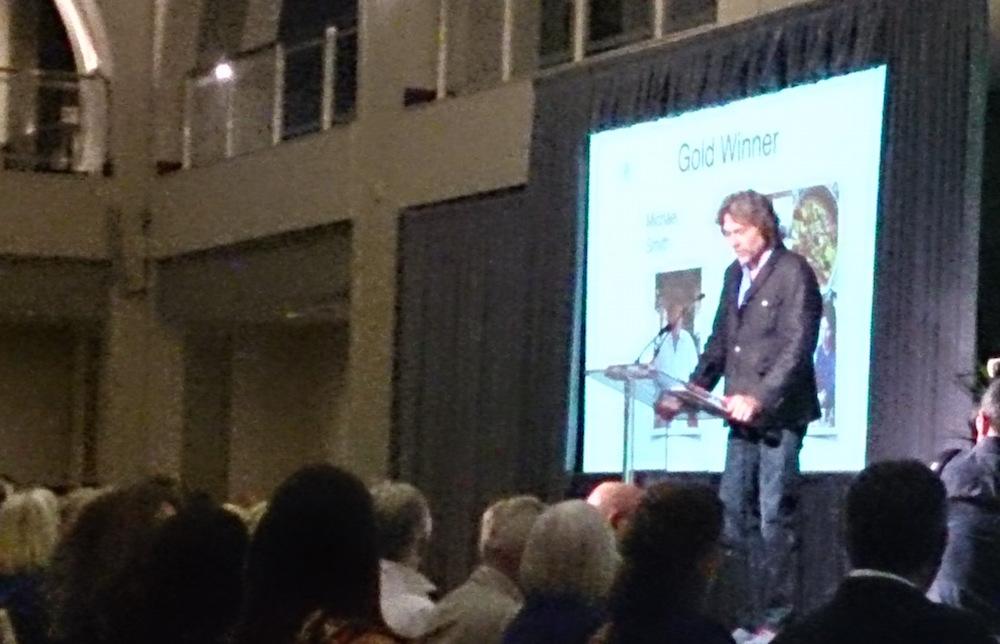
Gold Award winner chef Michael Smith.
Winners Single Subject Cookbooks: Duchess Bake Shop, by Giselle Courteau. Duchess Bake Shop. French: Soupes-repas gourmands. Anne-Louise Desjardins. Guy Saint-Jean, Editeur, Laval. General Cookbooks: Family Means, by Michael Smith. Penguin Canada Books. French, Ensemble: Cuisine gourmande et colorée. Christelle Tanielian. Les Éditions La Presse, Montréal. Regional and Cultural Cookbooks: The SoBo Cookbook: Recipes from the Tofino Restaurant at the End of the Canadian Road, by Lisa Ahier and Andrew Morrison. Appetite by Random House. French, Mention Speciale: La Recolte. Bernard Dube. Bernard Dube, New Richmond. Culinary Narratives: Secrets of a Hutterite Kitchen: Unveling the Rituals, Traditions, and Food of the Hutterite Culture, by Mary-Ann Kirkby. Penguin Canada Books. French, Narratives: Ainsi cuisinaient les belles-sœurs dans l’œuvre de Michel Tremblay : Une traversée de notre patrimoine culinaire 1913 – 1963. Anne Fortin. Flammarion Québec, Montréal. Blog Posts: Whole Roasted Cauliflower with Hazelnut, Orange and Saffron, by Allison Day. Yummy Beet. French, Blog Posts: Pizza 3 minutes: saucisses italiennes, épinards, tomates cerises, cœurs d’artichauts et mozzarella » Christelle Tanielian. Christelle Is Flabbergasting. 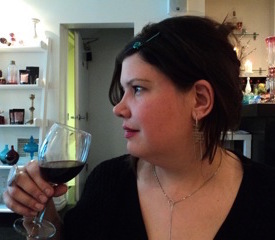 Lorette C. Luzajic is a Toronto writer and artist. Her collage-centred paintings use mixed media to explore ideas from art, literature, history and culture, always fascinated by the intersection of human creativities. Exhibition of her work is ongoing throughout Toronto, including such venues as the Spoke Club, the Royal Ontario Museum, the Flying Pony Gallery, Toronto Outdoor Art Exhibition, and the Artist Project, and it has been shown in Belfast, Brisbane, Los Angeles, Edinburgh, and beyond. In addition to occasionally writing about her other passions, food and wine, she is the author of more than ten books of poetry, short fiction, and essays, including Funny Stories About Depression, Fascinating Artists, and Kilodney Does Shakespeare. She is the editor of the new online journal, Ekphrastic. Visit her at mixedupmedia.ca. Photo by Ralph Martin.
Lorette C. Luzajic is a Toronto writer and artist. Her collage-centred paintings use mixed media to explore ideas from art, literature, history and culture, always fascinated by the intersection of human creativities. Exhibition of her work is ongoing throughout Toronto, including such venues as the Spoke Club, the Royal Ontario Museum, the Flying Pony Gallery, Toronto Outdoor Art Exhibition, and the Artist Project, and it has been shown in Belfast, Brisbane, Los Angeles, Edinburgh, and beyond. In addition to occasionally writing about her other passions, food and wine, she is the author of more than ten books of poetry, short fiction, and essays, including Funny Stories About Depression, Fascinating Artists, and Kilodney Does Shakespeare. She is the editor of the new online journal, Ekphrastic. Visit her at mixedupmedia.ca. Photo by Ralph Martin.

